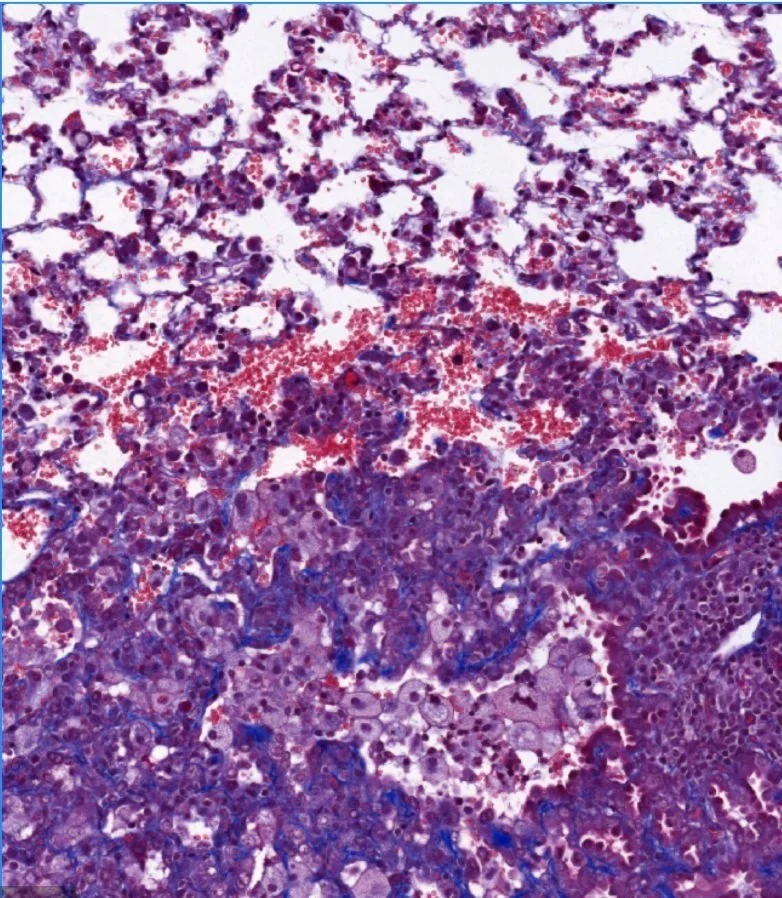Mycobacterium tuberculosis
Areas of Focus
-
Mechanisms and consequences of phagosome membrane damage in Mtb-infected cells
Failure to clear infection with Mycobacterium tuberculosis arguably begins the moment that the bacterium enters host cells without eliciting a sterilizing response. Damage to the phagosomal membrane is thought to be a pivotal event in Mtb infection of macrophages, and key Mtb virulence factors contribute to that damage. We are interested in how phagosome membrane damage and repair occur and the mechanisms through which damage benefits the bacterium.

-
Pathogenesis of acute and chronic tissue damage in TB infection
Although most TB research is focused on the period of active infection, it is increasingly recognized that up to 50% of the morbidity and mortality associated with TB infection is a result of the chronic tissue damage left after infection is cured. Given the global burden of tuberculosis, TB is arguably the leading cause of pulmonary fibrosis around the world. Our understanding of the mechanisms through which acute tissue damage and chronic fibrotic changes occur during TB infection are largely unknown. Using a mouse model, we are interested in understanding the contributors to acute and chronic tissue damage in TB infection and how novel therapies might improve functional outcomes after successful antibiotic treatment.
